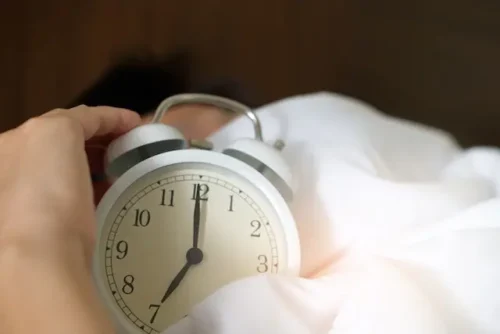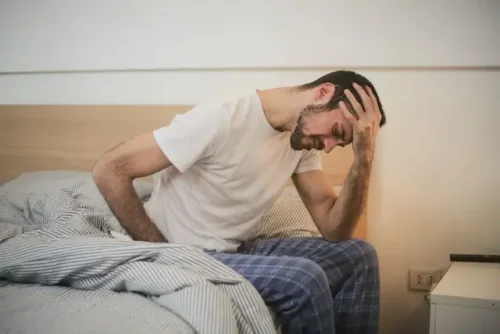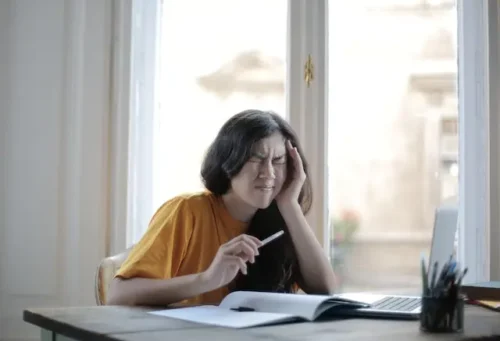
How to Recognize the Signs of Depression and Anxiety
Life is always full of ups and downs. It’s natural to experience difficulties and problems along the way. But how do you know whether your feelings are just a phase or a more significant issue? Very often, it’s challenging for people to realize and acknowledge that they’re depressed or anxious. Even to the people in their life, everything may seem alright. That’s because depression and anxiety can come in many shapes and forms. While there are some common traits, different people will show different symptoms and behaviors. As a result, it can be challenging for themselves and their loved ones to understand how they truly feel. With this in mind, we’ve prepared this guide on how to recognize the signs of depression and anxiety.
Why Can it be Difficult to Recognize The Signs of Depression and Anxiety?
We all experience stress from time to time. It results from changes in our lives, everyday occurrences, or painful events. People often forget that stress is neither good nor bad. It’s our natural response to a situation. However, issues arise when we can’t deal with stress and overcome it. It affects our mental well-being in many ways, leading to other problems such as depression or anxiety.
Signs of anxiety and depression can be physical and mental and often overlap. In addition, people react in different ways and cope differently. Furthermore, people can experience different levels of depression – from mild to severe. All of this makes it challenging always to recognize the signs. However, some common symptoms can guide you.
Physical Signs of Depression and Anxiety
Let’s start with some physical symptoms. Keep in mind that we all feel some of these from time to time. But if you feel like this very often or most of the time, it may be a sign to take steps toward getting better.
Lack of Energy and Persistent Feeling of Fatigue
Depression and anxiety strain our ability to be active and perform everyday activities. Even the most minor tasks can leave us feeling drained and exhausted. If a person is generally healthy and gets enough sleep, they shouldn’t feel this way. Lack of energy, numbness, and persistent fatigue can be signs of depression.

Sleeping Difficulties
Depression and anxiety mess with how we process things, leading to physical issues. Having trouble sleeping can be a sign of this. For example, you can’t fall asleep as easily as you used to or keep waking up throughout the night. Both insomnia and oversleeping (hypersomnia) can be the symptoms.
Read MOre: 10 Tips to Improve Your Sleep Quality
Weight and Appetite Changes
We all know healthy eating habits are vital for physical and mental health. So, if you suddenly lose your appetite, it’s a sign that something’s wrong. Gaining and losing weight can indicate depression and anxiety, especially if the change is sudden and has no other physical cause.
Anxiety Symptoms
Depression and anxiety often go hand in hand. Anxiety can be an issue on its own, but sometimes it’s a symptom of depression, too. Some signs of anxiety include:
- increased heart rate and a feeling of tightness in the chest
- shakiness
- rapid thoughts
- racing thoughts and inability to focus on anything but one thing.
Emotional and Psychological Signs of Depression and Anxiety
While people often overlook physical signs, those relating to our feelings and behavior are more commonly known. Of course, like physical symptoms, we all feel down and in the blues sometimes. But if these feelings and thoughts persist, they may be a sign of depression.
Feeling low or numb very often
If the feelings of sadness and low mood won’t go away, it may be a sign that a person is dealing with depression and anxiety. Feeling out of sorts or numb is natural unless it continues for longer periods of time. Everybody feels down occasionally, but it can signify a deeper issue if these feelings persist.

Lack of interest or pleasure in things a person previously enjoyed
One of the first signs is when the person loses interest in what they like or no longer enjoy. Depression drains our energy, so people find it challenging to muster their motivation and desire to do something they once enjoyed. However, losing interest in one of your hobbies is not always an indicator of a more severe issue. You might have just lost interest in pursuing it. In that case, keep an eye out for other hobbies and activities; if similar happens to them, it could be one of the signs of depression and anxiety.
Experiencing negative feelings such as guilt, worthlessness, hopelessness
Depression also confuses our sense of self. People may feel guilt over trivial things or things they can’t control. Constantly feeling like a failure or telling yourself that you’re worthless is one of the common signs. People often feel hopeless, which makes it challenging to seek help.
Lack of concentration and difficulty remembering
Depression also interferes with our decision-making ability. We may experience brain fog or feel like we can’t think straight. It may become hard to concentrate on the tasks, or a person can keep forgetting about necessary appointments.

Having suicidal thoughts or attempts
Lastly, severe levels of depression and anxiety may include focusing on death and having suicidal thoughts. A person may lose their will to live or start thinking they’re a bother to everyone. These thoughts are not founded in reality, but they feel real, and it’s hard and maybe even impossible for a person to find their way out on their own.
Read More: How to Appear Confident and Attractive: 8 Beauty Tips
When To Seek Help?
So, when do all of these symptoms become a point of concern? As we’ve mentioned before, everyone feels down from time to time. But if these symptoms are intense and persist for longer periods of time, it’s best to ask for help. Talking to a family member, a friend, or a doctor can be a vital first step. But if you feel like they are unable to help you, don’t forget that looking for a qualified expert is also an option. There are plenty of therapy providers online that can help you recognize and overcome these issues. Just make sure you find one who is the right match for you.
The Bottom Line
Depression and anxiety are pretty common mental health issues. Most people will experience one or both at one point during their lives. Although there are effective treatment options for both, the main difficulty is that many people don’t realize what they’re going through. As a result, they don’t ask for help or wait until symptoms get worse before they do. If you recognize any of the signs of depression and anxiety in yourself or your loved ones, don’t hesitate to seek help and make positive life changes.

